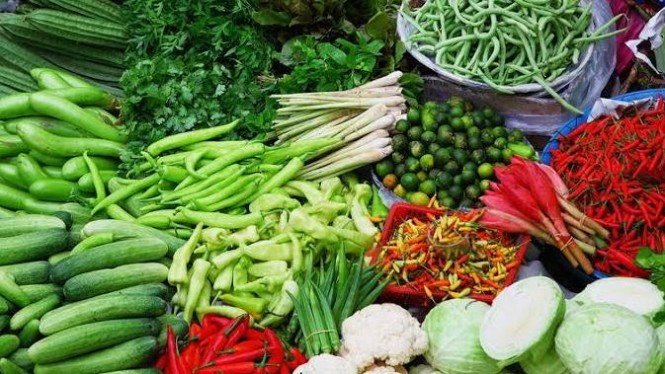Optimal Government Maintains Food Availability Ahead of Ramadan
By: Farida Putri )*
The government is optimal in maintaining food availability ahead of the holy month of Ramadan. These various ways are taken by carrying out market operations and selling cheap basic necessities, to accelerating harvests so that rice stocks are fulfilled.
Ahead of Ramadan, food supplies are always checked and ensured by the government to be sufficient. The reason is because during the fasting month, the market actually becomes crowded because women buy rice (for zakat fitrah), side dishes, ingredients for takjil, and also ingredients for Eid cakes. So, the basic needs in the form of oil, sugar, and so on must be sufficient so that they are not in trouble.
The price of cooking oil has just been revised by the government and has been successfully reduced to only 14,000 rupiah per liter. However, in some areas, this falling price has actually made oil scarce. To overcome this, the government has conducted market operations in many areas, so that the stock is sufficient and makes people not bothered anymore.
Coordinating Minister for Economic Affairs Airlangga Hartarto directly observed one of the market operations in Riau. According to him, this operation is very important to make it easier for people to get cooking oil, sugar, and other basic necessities. In addition, basic necessities are also sold at below market prices, so that people will save money.
Market operations will be carried out in other areas, especially ahead of the fasting month. The goal is to evenly distribute groceries to the community. Don’t let sugar and cooking oil become scarce during Ramadan, because they will find it difficult to cook and make drinks for breaking the fast.
In addition, Minister Airlangga Hartarto also investigated the case of hoarding cooking oil. Anyone who does so will face up to five years in prison and a fine. Companies that stockpile were immediately ordered to distribute oil to all residents, because they really need it as preparation before the fasting month.
Food supplies are also supported by production alias from the agricultural sector. Indonesia managed to return to self-sufficiency in rice (as in the New Order era) because agriculture really accelerated. After harvest, there is no free time, but rice fields and fields must be replanted. This was stated by the Minister of Agriculture Syahrul Yasin Limpo.
If the harvest is accelerated, the quality of rice seeds and other foodstuffs must also be good. If in the past the harvest was only once or twice a year, now it can be up to three or four times. The Ministry of Agriculture cooperates with agrarian experts to produce quality seeds that can be harvested in a short time, so that rice stocks will be safe during Eid.
Minister Syahrul added, in addition to accelerating and increasing the harvest, the quality of rice must also be maintained. In a sense, don’t let the rice in circulation be filled with fleas and small pebbles, while the good ones are even exported. We must prioritize national needs first and entrepreneurs should not only pursue money, but prioritize a sense of nationalism.
Rice supplies at the Logistics Affairs Agency (Bulog) are also checked and confirmed to be sufficient for the next few months, even after Eid. That way, there will be no rice imports because they have been self-sufficient for the past few years. The import faucet is closed because it prioritizes local farmers.
The government is trying optimally so that the availability of food is always available before and during the month of Ramadan. The reason is, at that time the people’s food needs actually increased, both for their own consumption and for zakat and alms. The rice stock at Bulog is always checked to ensure it is sufficient for the next few months.
)* The author is a contributor to Pertiwi Institute
